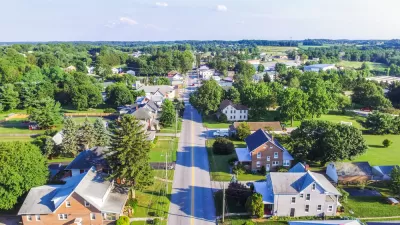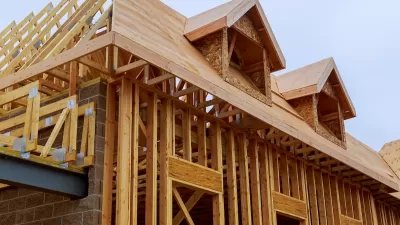An analysis of housing affordability shows rising costs in America's smaller cities.

The effects of the pandemic continue to roil the housing market, writes Justin Fox for Bloomberg, as expensive "superstar" cities lose some of their attractions and remote work makes it "easier to disconnect superstar-city jobs from superstar-city real estate prices."
To understand "the strains that the great pandemic migration may be putting on typical workers’ housing budgets in some of the places where people have been moving," Fox "compared the Bureau of Labor Statistics’ most recent estimates of median wages by metropolitan area (from May 2020) to Apartment List’s April 2021 metro-area rent estimates" to gauge housing affordability.
"By this measure, Orlando is less affordable than San Francisco, and Austin and Las Vegas less affordable than San Jose. They’re not more expensive in absolute terms, of course; someone moving from San Francisco or San Jose would still find all those places to be pretty cheap, especially if they were able to keep working at San Francisco or San Jose wages. But most people in Orlando and Austin and Las Vegas don’t have that option."
"Since the 1960s, the East and West Coasts (California in particular) have also experienced what economists Chang-Tai Hsieh of the University of Chicago and Enrico Moretti of the University California at Berkeley term a 'property rights revolution' of anti-development activism and regulation that’s made it even harder to build enough new housing to satisfy demand." The same NIMBY impulses have surfaced in "smaller, even more scenic metro and micro areas such as Boulder, Colorado; Bozeman, Montana; and Bend, Oregon," says Fox. In these towns, "the combination of mountains, rising opposition to development and high demand have driven home-purchase prices up to or past the levels of metro Boston and New York."
Fox's findings show that the most affordable cities are in the South and Midwest and include "iconic cities that fell on hard times but have been making a comeback" like Detroit and "places [that] are already magnets for skilled younger workers" like Pittsburgh and Indianapolis.
FULL STORY: Covid Has Made Orlando Less Affordable Than San Francisco

Planetizen Federal Action Tracker
A weekly monitor of how Trump’s orders and actions are impacting planners and planning in America.

Restaurant Patios Were a Pandemic Win — Why Were They so Hard to Keep?
Social distancing requirements and changes in travel patterns prompted cities to pilot new uses for street and sidewalk space. Then it got complicated.

Map: Where Senate Republicans Want to Sell Your Public Lands
For public land advocates, the Senate Republicans’ proposal to sell millions of acres of public land in the West is “the biggest fight of their careers.”

Maui's Vacation Rental Debate Turns Ugly
Verbal attacks, misinformation campaigns and fistfights plague a high-stakes debate to convert thousands of vacation rentals into long-term housing.

San Francisco Suspends Traffic Calming Amidst Record Deaths
Citing “a challenging fiscal landscape,” the city will cease the program on the heels of 42 traffic deaths, including 24 pedestrians.

California Homeless Arrests, Citations Spike After Ruling
An investigation reveals that anti-homeless actions increased up to 500% after Grants Pass v. Johnson — even in cities claiming no policy change.
Urban Design for Planners 1: Software Tools
This six-course series explores essential urban design concepts using open source software and equips planners with the tools they need to participate fully in the urban design process.
Planning for Universal Design
Learn the tools for implementing Universal Design in planning regulations.
Heyer Gruel & Associates PA
JM Goldson LLC
Custer County Colorado
City of Camden Redevelopment Agency
City of Astoria
Transportation Research & Education Center (TREC) at Portland State University
Camden Redevelopment Agency
City of Claremont
Municipality of Princeton (NJ)





























